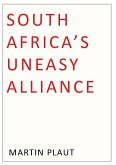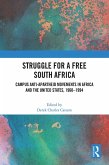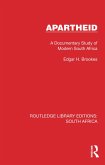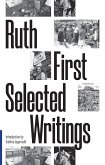This book is built around extensive quotes from members of Khulumani Support Group, the apartheid survivors' social movement, and young people growing up in Khulumani families. It shows how these survivors, who bridge the past and the present through their activism, understand and respond to socioeconomic drivers of violence.
Pointing to the continuities between apartheid oppression and post-apartheid marginalisation in everyday life, the narratives detail ways in which the democratic dispensation has strengthened barriers to social transformation and helped enable violence. They also present strategies for effecting change through collaboration, dialogue and mutual training and through partnerships with diverse stakeholders that build on local-level knowledge and community-based initiatives.
The lens of violence offers new and manageable ways to think about reducing inequality, while the lens of inequality shows that violence is a complex web of causes, pathways and effects that requires a big-picture approach to unravel. The survivors' narratives suggest innovative strategies for promoting a just transition through people-driven transformation that go well beyond the constraints of South Africa's transitional justice practice to date.
A result of participatory research conducted in collaboration with and by Khulumani members, this book will be of interest to activists, students, researchers and policy makers working on issues of transitional justice, inequality and violence.
Reviews of 'Violence, Inequality and Transformation: Apartheid Survivors on South Africa's Ongoing Transition,' by Jasmina Brankovic, Brian Mphahlele, Sindiswa Nunu, Agnes Ngxukuma, Nompumelelo Njana and Yanelisa Sishuba
"In this timely book, apartheid's survivors illustrate how the capitalist system that drove apartheid continues to drive inequality, poverty and violence in democratic South Africa and how the denial of socioeconomic rights undermines civil, political and cultural rights. ... Those in power need to listen to these critical voices." - Pregs Govender, activist and author of Love and Courage: A Story of Insubordination
"This volume represents an innovative and desperately needed rethink of approaches to structural violence and the idea of justice in political transitions. ... The Participatory Action Research modality that drives the contents of this book articulates the empowerment of the social transformation that Khulumani demands and highlights this as a grassroots effort, incarnated in Khulumani as a social movement, to drive a transformative justice. As such, it represents an empirical case study that both challenges conventional wisdom of the South African transitional justice process as a model and shares the valuable and impressive experience of Khulumani as a tool to understand, make visible and challenge ongoing injustice. Global efforts to build a new practice of transformative justice demand such examples and this volume represents one important step on the path to constructing such a practice." - Simon Robins, Senior Research Fellow at the Centre for Applied Human Rights, University of York
Table of Contents
Introduction
Chapter 1. Democratic Transition and Stalled Transformation
Chapter 2. Socioeconomic Drivers of Violence in a South African Township
Chapter 3. From Drivers to Acts of Violence
Chapter 4. (Inter)Generational Responses to Inequality and Violence
Chapter 5. Apartheid Survivors and Strategies for Social Transformation
Conclusion
Dieser Download kann aus rechtlichen Gründen nur mit Rechnungsadresse in A, B, CY, CZ, D, DK, EW, E, FIN, F, GR, H, IRL, I, LT, L, LR, M, NL, PL, P, R, S, SLO, SK ausgeliefert werden.









